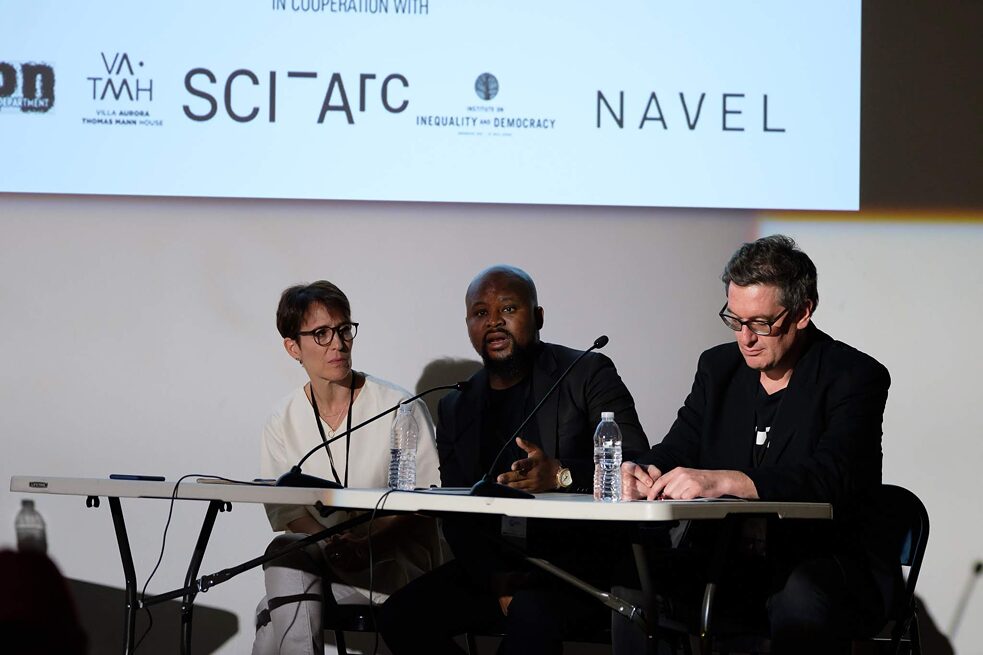WORLDS OF HOMELESSNESS - DAY 3: How can city planning and architecture engage with housing and homelessness and create thoughtful processes with communities?
There is a common misconception that city planning and architecture seek to provide „solutions to end homelessness.“ These solutions include various types of supportive, affordable, and shared housing as well as small scale structures providing temporary shelter. Independent of the quality of design thinking, such projects and structures can be met with opposition by the communities coming from the prospective occupants and the existing community.
Camera: Alexandra Brown, Helena Cortes / Edit: Alexandra Brown
“How can homeless communities become a part of the strategic design process that is engaging and beneficial for them? How can architects produce mutually supportive environments for houseless communities? How can community-driven processes contribute to responsible and comprehensive design solutions? How can schools of design and architecture encourage the success of such initiatives?” These overarching questions lead the panel’s discourse for Day 3 and a heated debate with the audience after the presentations.
-
 Photo: Khalid Farquharson © Goethe-Institut Los Angeles
Photo: Khalid Farquharson © Goethe-Institut Los Angeles
-
 Foto: Khalid Farquharson © Goethe-Institut Los Angeles
Foto: Khalid Farquharson © Goethe-Institut Los Angeles
-
 Photo: Khalid Farquharson © Goethe-Institut Los Angeles
Photo: Khalid Farquharson © Goethe-Institut Los Angeles
-
 Photo: Khalid Farquharson © Goethe-Institut Los Angeles
Photo: Khalid Farquharson © Goethe-Institut Los Angeles
-
 Photo: Khalid Farquharson © Goethe-Institut Los Angeles
Photo: Khalid Farquharson © Goethe-Institut Los Angeles
-
 Photo: Khalid Farquharson © Goethe-Institut Los Angeles
Photo: Khalid Farquharson © Goethe-Institut Los Angeles
-
 Photo: Khalid Farquharson © Goethe-Institut Los Angeles
Photo: Khalid Farquharson © Goethe-Institut Los Angeles
-
 Photo: Khalid Farquharson © Goethe-Institut Los Angeles
Photo: Khalid Farquharson © Goethe-Institut Los Angeles
-
 Photo: Khalid Farquharson © Goethe-Institut Los Angeles
Photo: Khalid Farquharson © Goethe-Institut Los Angeles
-
 Photo: Khalid Farquharson © Goethe-Institut Los Angeles
Photo: Khalid Farquharson © Goethe-Institut Los Angeles
-
 Photo: Khalid Farquharson © Goethe-Institut Los Angeles
Photo: Khalid Farquharson © Goethe-Institut Los Angeles
On the panel on day 3 at Sci-Arc: Darin Johnstone from Los Angeles has worked collaboratively with Habitat For Humanity; Alexander Hagner from Vienna, Austria has created mixed housing that brings people experiencing homelessness together with students; Thorsten Deckler and Tebogo Ramatlo from Johannesburg, South Africa, have worked with informal settlements, community architects and students from the Johannesburg University Faculty of Architecture and Design; and Ana Elvira Vélez, is an architect from Columbia, who has successfully created collective housing in Medellin.
The event was streaming live on the SCI-Arc FB Channel.
View the video.











